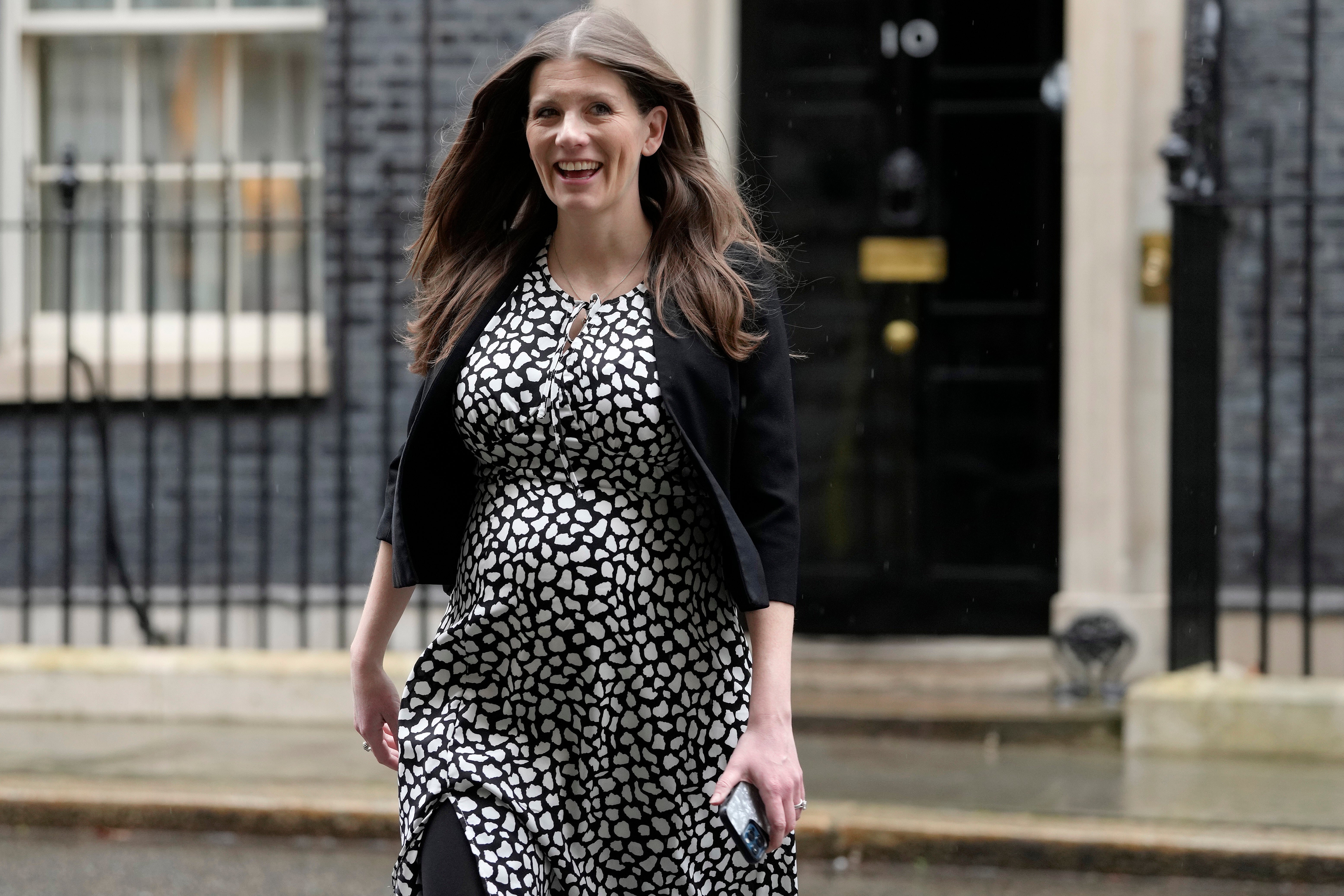Things are changing for women at Westminster. Why has it taken so long?
No one should have to pick between their job and their desire to have children, writes Marie Le Conte


Politicians sometimes whinge that journalists only ever care about things going wrong and never about things going right. They do, on occasion, have a point – not often, but still.
In this spirit, I’d like to take a moment to celebrate a small piece of good news. On Friday, Rishi Sunak conducted a mini-reshuffle to fill the space left by Dominic Raab’s resignation. Alex Chalk is justice secretary, James Cartlidge a minister of state at the Ministry of Defence, Gareth Davies is the new exchequer secretary to the Treasury.
All three are men, which is both disappointing and does little to address the pre-existing gender imbalance in government, but that has already been discussed elsewhere.
Instead, the most interesting appointments made last week were Michelle Donelan and Julia Lopez, both soon to become ministers on leave. In time, they will be replaced – temporarily – by Chloe Smith, who will act as secretary of state for science, innovation and technology, and John Whittingdale, who will cover a ministerial role between the DCMS and DSIT.
They were welcomed with a mild interest at best; a yawn at worst. Women get pregnant – they go on maternity leave, they get replaced by someone else during that time, they return to work. Easy! Or is it?
Donelan and Lopez are only able to take the time off in a formal manner thanks to the Ministerial and other Maternity Allowances Act, which only became law in 2021. It is a very recent change, yet has already become so normal that it is barely remarked upon when put in use. That is indisputably a good thing and should be applauded.
Then again, it is possible that it was only absorbed so quickly because it had been so grossly overdue. Lest we forget, the first woman to take maternity leave while a minister was one Yvette Cooper, a whopping 22 years ago. The child she gave birth to would now be able to take their own parental leave.
It also took a number of shocking developments – most memorably, Labour MP Tulip Siddiq postponing giving birth to participate in a Brexit vote – for it to finally happen. Still, it is now done, meaning that we ought to look at what should come next.
The next step should be straightforward: MPs of all genders should not have to have been successful at climbing the greasy pole in order to get leave when they have children. It is currently impossible for backbenchers to formally take leave and appoint a temporary replacement, and there are no plans for this to change anytime soon.
Though those MPs can appoint a proxy so they do not have to be on the estate to vote, there is little else they can formally set in place. While no one is arguing that people who weren’t elected should be able to speak in the chamber of the Commons, there are other ways in which parental cover could be useful.
This was demonstrated quite effectively by Stella Creasy, who was the first MP to appoint a locum while she went on maternity leave. While the Walthamstow MP was taking care of her newborn, Kizzy Gardiner liaised with MPs on constituency issues, corresponded with ministers, kept up with national campaigns and ran advice surgeries.
It should have been the beginning of something; proof that a formalised scheme like this should be available to all MPs. Instead, three years on, Gardiner remains the only person ever to become an MP’s locum.
It is a frustrating state of affairs, especially as political parties keep trying to attract a wider range of candidates into parliament. If we would like more politicians from regular backgrounds, single parents and young people representing us, we need to ensure that the life of an MP is a bearable one. No one should have to pick between their job and their desire to have children.
The change would be a radical one at first, but there is little doubt that it would, if adopted, become a normal part of the political landscape quicker than we’d think. That is the lesson that should be learnt from the Maternity Allowance Act: things often look immutable until they don’t.






Join our commenting forum
Join thought-provoking conversations, follow other Independent readers and see their replies
Comments